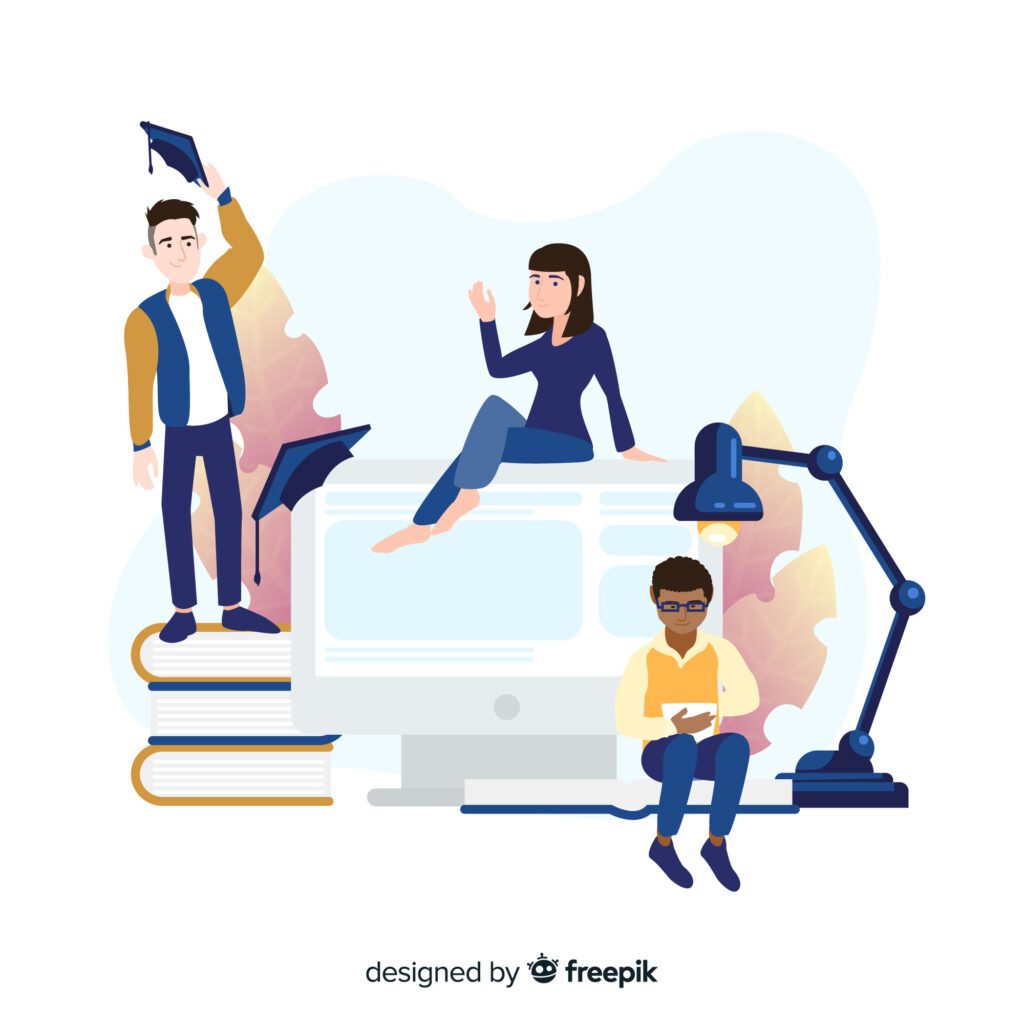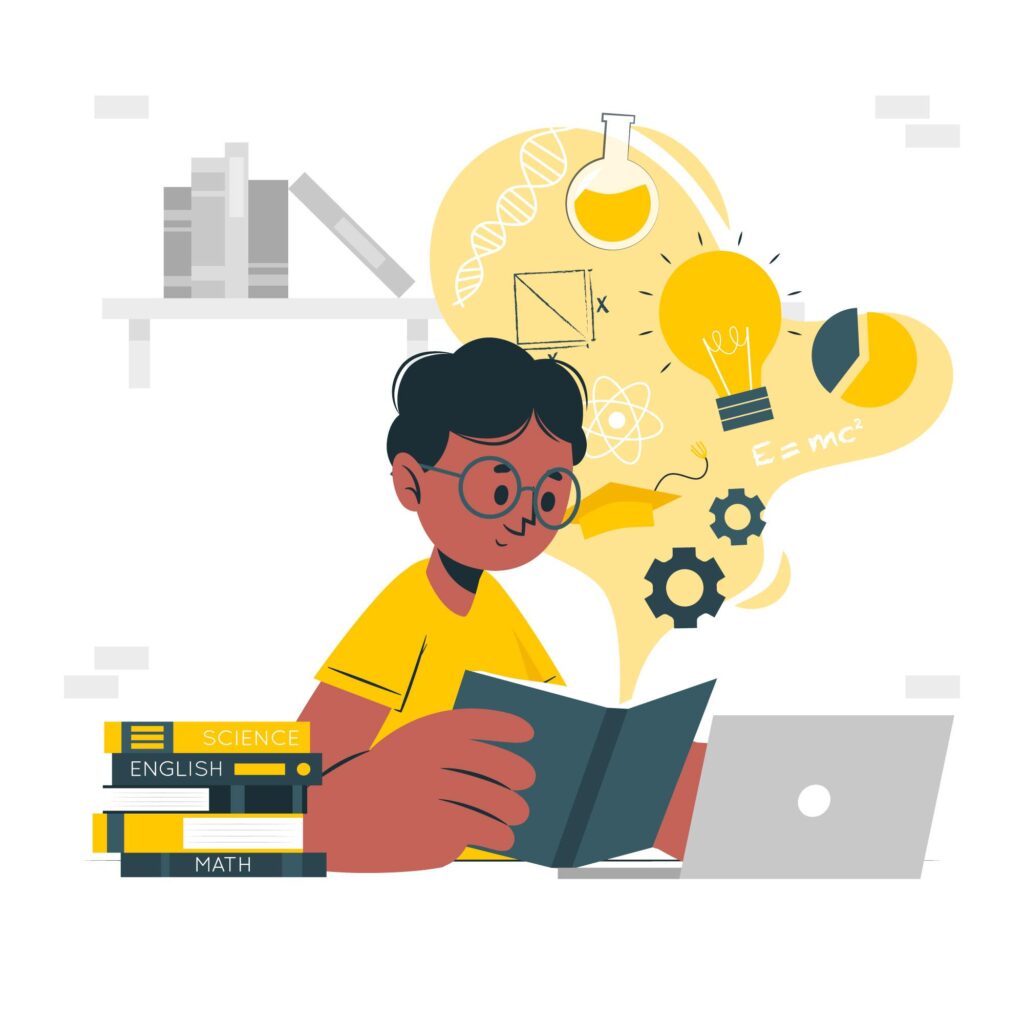Introduction
Importance of Self-study during exams is a genuine technique to understand the concepts at an understanding that is familiar to us. In this technique in which we teach and make ourselves comprehend but without any teacher present. is a It is very essential to use during the exams and even when they don’t occur, it enhances our ability of minds to understand broadly from our perspective. let’s understand the sheer importance.
Importance of self-study during exams
- Fostering Independence:
- Self-study empowers students to take control of their learning journey.
- You decide when to study(time), where to study (library, home, park), what to study (different topics).
- Developing Critical Thinking:
- Engaging with the material independently promotes critical thinking skills.
- Analyzing information, making connections and connecting the dots in a manner to teach ourselves, develop our best abilities.
- Lifelong Learning:
- Self-study isn’t just about passing exams; it instills a passion for lifelong learning.
- Becoming a self-directed learner encourages seeking knowledge throughout life.
- Better understanding:
- It is so true that you are your own teacher and can teach yourself the best.
- Self studying instills the best quality to break the complex concepts into simpler ones.
- Silence is the key:
- It is proven that mind become creative only when it meets solitude.
- In silence you can fetch the deep thoughts and create your own examples and mind understands literally everything.

Benefits of self-study during exams
- Flexibility:
- It is best when you can take anytime you feel like studying , collect your resources and just go for it.
- It is ideal for those who have a hectic schedule of classes everyday and other obligations to fulfill as well.
- Self-motivation and self-reliance:
- when we become our teachers it is like we know everything and it helps in other spheres of our life too.
- We become more independent and boost our confidence when we achieve short term goals and meet deadlines.
- Time management skills:
- This is one of the most precious skills to have in today’s era and is so perfectly rated by the top successful people.
- One can learn managing the time between studying and other activities , which will eventually help you in life ahead when it becomes more harsh.
- More retaining power:
- This is proven that self-studying helps to retain more. You learn more when we repeat what’s been done in class or in tutions.
- You remember it longer when you have taught yourself about the subject and done it practically.
- Builds concentration:
- The more you sit and learn things , your brain will automatically develop a habit of studying daily.
- It will necessarily improve the habits of discipline and sheer concentration which will help in other activities too apart from studying.
- Ability to take action:
- After taking classes from school and tution, the only thing left is to actually do the things yourself.
- This makes all the difference between a topper and an average student, this ability to revise all the concepts and move forward.
- Removes self-doubt:
- Self-studying instills the confidence that you can clear your own doubts, understand things properly.
- This concludes in high self-esteem and removes self-doubt about your capability and potential.
“Every beginner possesses a great potential to be an expert in his or her chosen field.”
— Lailah Gifty Akita
Effective Self-Study Implementation
- Set Clear Goals:
- Define your objectives: mastering a subject, passing an exam, or acquiring new skills.
- Knowing your purpose guides your self-study efforts.
- Create a study schedule:
- It means listing the tasks need to be done throughout your day (like a timetable).
- Consistently following the schedule will be beneficial to carry out successful results.
- Gather resources:
- Collect as what you need to learn a specific idea for example- books, educational apps, courses (offline or online).
- Have everything at your table so that you don’t have to get up everything and to ensure that everything works in a flow.
- Effective study place:
- Try not to be comfortable while you are studying , don’t study in bed or couches.
- Maintain a posture while learning, try not to slouch , these activities can signal the brain to feel drowsy.
- Knowing when to stop:
- Whenever you will feel lethargic or feel like not studying , you should stop until your batteries are charged again.
- Give yourself the time to relax, because new things don’t get into the mind at one stroke , it needs to be revised and done again and again.
- Disciplined mindset:
- Having the seed planted in you is what you need to be focused and achieve the task that you have set, that seed is discipline.
- Always be wise while making choices, don’t procrastinate because it will pile up the tasks for you and you will not be able to cover up.
- Removing distractions:
- It will not be useful if one is using social media or daydreaming in between your important work.
- Focus the knowledge you are gaining by the amount of time you are putting in ; it should never be the question of how many hours but how much did i learn?
Proven Scientific learning methods
- Spaced Repetition:
- What– giving optimal breaks between learning a new topics
- How– There is no need to mug up, just take breaks while studying
- Benefit – No burnout and improves learning power
- Active Recall:
- What-Actively saying the information out loud and putting in your energy.
- How– self-made questions, using mind maps
- Pomodoro Technique:
- What– effectively studying for 25/45 minutes and taking break of 5/15 minutes.
- How– set a timer, study for that time effectively, then take a break
- Benefit– Mind relaxes in between the break and help to retain more new information.
- Feynman Technique:
- What: Simplify complex concepts by teaching them to someone else.
- How: Pretend you’re explaining the topic to a beginner or your elder brother/sister.
- Benefits: Deepens understanding and identifies gaps.
- PQ4R Study Method:
- What: Preview, Question, Read, Reflect, Recite, Review.
- How: Engage actively with the material at each step.
- Benefits: Improves comprehension and retention.
- Group Study:
- What: Having a study session with friends or classmates.
- How: Sit with them and learn topics , ask each other questions about the same.
- Benefits: Awareness of where you lack and can improve it.
- Flashcards Technique:
- What: Preparing flashcards for each subject and section. They should be more precise than notes.
- How: You can use colour sheets or readymade plain flashcards.
- Benefits: Information is learnt by heart and quick understanding of topics.
How to stay MOTIVATED while self-studying
- Start small: You should always focus on doing things step by step . The larger can be seen smaller if you learn how to break them into shorter pieces. This technique always works with academics or anything, even the athletes preparing for olympics start off with shorter training sessions and then extend it.
- Do the hard things first: It is advised to do the hard things first so that you can feel a sense of accomplishment. Learning or even doing any homework get tiring after a prolonged period of time , keeping hard things for the last may result in you not doing it because of exhaustion.
- Include studying as a part of routine: Studying should be a part of your schedule. With time as you follow that routine, it would be not be a burden to start over.
- Ensure to study in a tidy space: Study at a place with no mess. It will help you to focus and memorize better when everything is at its place.
- Celebrate your wins: Even the small wins like completing a chapter of watching an educational video should be treated like a fest , you should feel proud of yourself to be able to focus and achieving a task even if it was small.
- Eliminate Distractions: Keep an eye on yourself and what surrounds you, don’t get distracted by social media or anything that might be addictive. Focus on your goals.
- Clarify your purpose: You should always have short term goals to focus on and make out proper strategy with plans to get there. Clarify as to why you are studying something specific so that the aim of studying it always be clear in your head.

Conclusion
At last, it is important to understand that we all are different, don’t get intimidated at the fact that others are learning faster than you do. Everybody is unique in their own way, you might be a slow learner and that’s okay. Self-studying always help in life, it is just like a teacher to us which gives ourselves a better perspective of everything when thought at one’s understanding about things, concepts, ideas, topics, comprehensions etc. Hence there is a lot of importance of self-study during exams and when they don’t occur then too.



